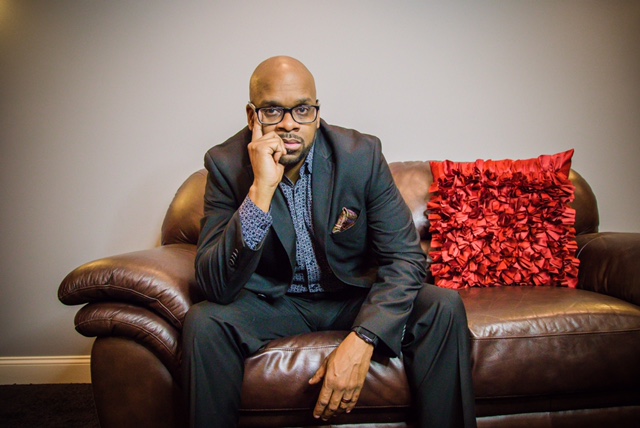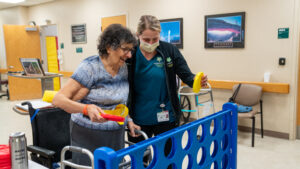The Rev. Dr. Donald Morton cautioned the people in the audience. They might feel uncomfortable at times during his address.
“I am a proponent and believer in uncomfortable conversations — conversations that are necessary if we are going to have any sort of advancement in our society,” he said.
Rev. Morton, pastor of Tabernacle Full Gospel Cathedral in Wilmington and a national figure in civil rights, spoke at a celebration of Black History Month on Feb. 21 at the John H. Ammon Medical Education Center, with video streaming to Wilmington Hospital. The event is part of a monthly series presented by Christiana Care’s Multicultural Heritage Committee. His presentation, “Understanding the Issues,” focused on race and the challenges of people of color and other minorities — and what people in the majority can do to ensure equality for everyone.
“America has a responsibility to include everyone in what is called life, liberty and the pursuit of happiness,” he said.
He encouraged people in the majority to take up the cause of people who have been historically disrespected and oppressed.
“It’s going to take you to lay down some of your privilege,” he said. “Just don’t write checks. Put your body at risk. Put your job at risk.”
On a personal level, Rev. Morton said he risked his career to support marriage equality in the LGBT community.
“It didn’t impact me,” he said. “But it was right.”
Rev. Morton spoke of being raised by a strong single mother, “who made my socks out of her socks,” and who has been working for social justice for more than 50 years. He talked about the challenges that black and brown people still face every day of homelessness, not finishing school, spending time in prison and then not being able to find a job or a place to live.
One night, after teaching Bible study at his church, he was pulled over by police “because that little light over my license plate was out,” he said. The officers questioned him intensely. Where was he going? Where does he live?
“Because I am in the skin I am in, I don’t want to take the chance of answering that question inappropriately,” he said.
Rev. Morton is hopeful the church can serve as an epicenter for social justice.
“I remain a prisoner of hope,” he said. “I am locked into a feeling that, in the words of a Baptist preacher, everything is going to be all right.”
He challenged people in the majority to engage in “full-throated conversations,” to question their culture.
“Be willing to be part of organizations where black people and brown people are in charge,” he said. “Acknowledge that black people and brown people might know something that you do not. None of us win until all of us win.”
Bettina Tweardy Riveros, Esq., chief health equity officer and senior vice president, Government Affairs and Community Engagement, at Christiana Care said these thought-provoking conversations lead to collaborative efforts to achieve equality for everyone.
“These are challenges we all face together,” she said. “We are grateful to hear about these experiences.”



